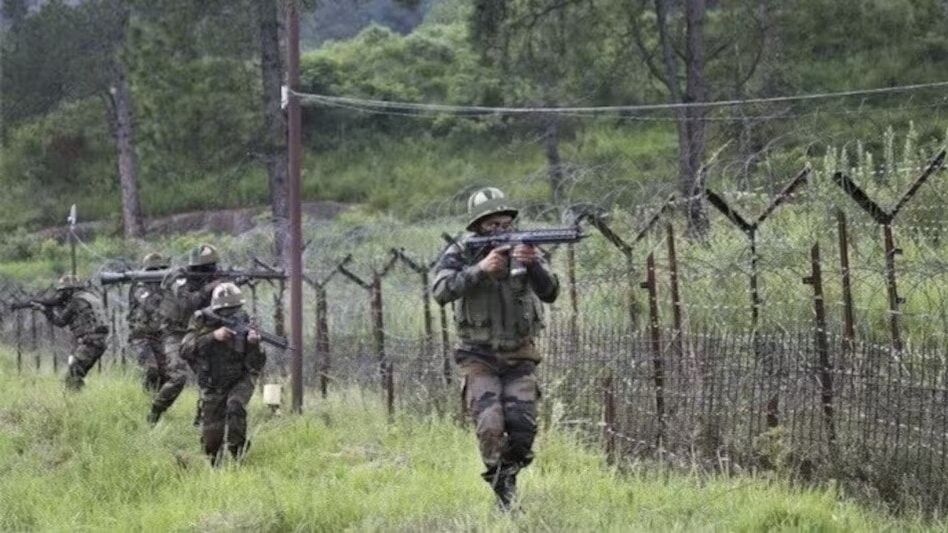Pakistani troops continue unprovoked firing along LoC in J&K amid escalated tensions
Pakistani troops continue unprovoked firing along the LoC, escalating tensions with India. The firing violates ceasefire agreements and follows the Pahalgam terror attack.
 Representative Image
Representative ImageAmid stalled relations and heightened tensions, Pakistani troops launched unprovoked firing in eight forward sectors along Jammu and Kashmir's Line of Control (LoC), violating ceasefire agreements and prompting retaliation from Indian troops.
This marks the 11th consecutive night of Pakistan's unprovoked firing along the LoC, amidst heightened tensions between New Delhi and Islamabad following the killing of 26 people in the April 22 terror attack in Pahalgam.
“During the night of May 4 and 5, Pakistan Army posts resorted to unprovoked small arms fire across the LoC in areas opposite Kupwara, Baramulla, Poonch, Rajouri, Mendhar, Naushera, Sunderbani, and Akhnoor in J-K,” a defence spokesperson in Jammu said.
“The Indian Army responded promptly and proportionately,” he said.
The firing was initiated by Pakistani troops across five border districts -- Jammu, Rajouri, and Poonch in the south of the Pir Panjal ranges in the Jammu region, and Baramulla and Kupwara districts in the Kashmir valley -- overnight.
Initially beginning with unprovoked small arms firing at several posts along the LoC in Kupwara and Baramulla districts of north Kashmir, Pakistan swiftly expanded its ceasefire violations to the Poonch sector and subsequently to the Akhnoor sector of the Jammu region.
This was followed by small arms firing at several posts along the LoC in the Sunderbani and Naushera sectors of Rajouri district. Subsequently, the firing expanded to the Pargwal sector along the International Border in Jammu district.
The ceasefire violation by Pakistan occurred despite the fact that the Directors General of Military Operations (DGMOs) of India and Pakistan spoke over the hotline amidst Pakistan's unprovoked firing along the Line of Control (LoC) in Jammu and Kashmir on April 29.
It is understood that the Indian side cautioned the Pakistani side about the unprovoked firings during the exchanges.
Since the night of April 24, just hours after India suspended the Indus Waters Treaty following the Pahalgam terror attack, Pakistani troops have been resorting to unprovoked firing at various places along the LoC in J-K, starting from the Kashmir valley.
On April 24, Pakistan blocked its airspace for Indian airlines, closed the Wagah border crossing, suspended all trade with India, and stated that any attempt to divert water meant for Pakistan under the Indus Waters Treaty would be considered an "Act of War."
The firing exchanges have made the February 2021 ceasefire agreement redundant, with widespread violations by Pakistan in scores of sectors along the 740-kilometer-long LoC.
India and Pakistan had agreed to a renewed ceasefire along the borders in Jammu and Kashmir in February 2021.
The situation has significantly changed since February 2021, when the DGMOs of India and Pakistan reiterated their commitment to the 2003 ceasefire agreement to ensure peace along the de facto border.
India shares a total of 3,323 km of border with Pakistan, divided into three parts: the International Border (IB), approximately 2,400 km from Gujarat to the northern banks of the Chenab River in Akhnoor, Jammu; the Line of Control (LoC), 740 km long, running from parts of Jammu to parts of Leh; and the Actual Ground Position Line (AGPL), 110 km long, dividing the Siachen region from NJ 9842 to Indira Col in the north.
Copyright©2025 Living Media India Limited. For reprint rights: Syndications Today









